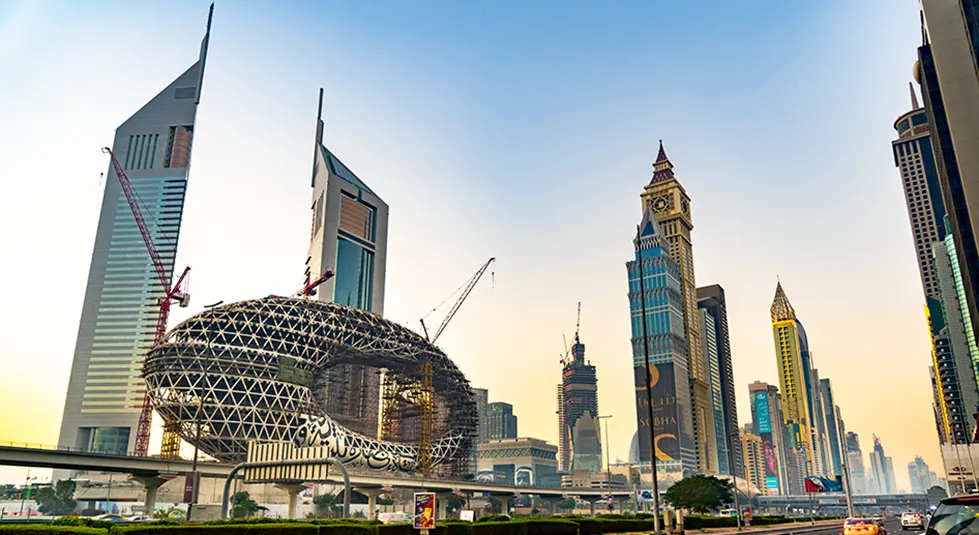The UAE presents numerous advantages, such as tax exemptions, for expatriates interested in establishing a business there. Alongside these benefits, there’s a diverse range of company types and structures available to suit varying business conditions and goals.
Navigating the decision between UAE mainland and free zones can be daunting. It’s common to encounter confusion, especially regarding jurisdiction selection. Differing opinions from various sources can further complicate matters. Given the significant investment involved in setting up a new company, seeking professional advice on your options is essential.
Let’s explore the differences between UAE mainland and free zone business setup:
Mainland Company Setup:
Mainland companies, also known as onshore companies, are registered with the Department of Economic Development (DED) in each UAE emirate.
Key Mainland Company Types:
Sole Establishment Company: Allows 100% ownership for a single investor.
Limited Liability Company: Combines elements of partnership and corporate structures.
Branch of Foreign Company: Can engage in professional activities in addition to some commercial and industrial activities.
Representative Office: Conducts business activity under a branch, requiring a Local Service Agent (LSA) who can be a UAE national.
Civil Company: Typically a partnership for professionals like doctors, lawyers, engineers, and accountants.
Free Zone Company Setup:
Investors can register their companies in over 40 free zones across the UAE, enjoying benefits such as tax exemption, remote registration processes, and 100% ownership.
Major UAE Free Zones Include:
Dubai Multi Commodities Centre (DMCC): Specializes in commodities trade and exchanges.
Jebel Ali Free Zone (JAFZA): Supports trading, service, logistics, and industrial activities.
Dubai International Financial Centre (DIFC): Focuses on banking, financial services, and legal activities.
Dubai World Central (DWC): Caters to aviation, logistics, light industry, and ancillary services.
Dubai Knowledge Park (DKP): Specializes in human resources management, training, and personal development.
Differences Between Mainland and Free Zone Companies:
Company Ownership:
Free zone companies allow 100% foreign ownership, whereas mainland companies were previously required to have local Emirati sponsors owning 51% of shares, although recent changes allow for 100% ownership in many activities.
Business Scope:
Mainland companies can trade with other mainland businesses, free zones, and businesses outside the UAE, while free zone businesses engaging in physical goods trading can only trade with other free zone businesses or internationally.
Tax Exemptions:
Free zone businesses are fully exempt from taxes, while mainland businesses currently have 0 corporate tax but may be subject to a 9% tax from 2023 for most activities.
Company Setup Cost:
Recent changes in sponsorship regulations have made the setup costs for mainland and free zone companies more comparable, emphasizing the importance of considering other factors like business activity flexibility and regulatory frameworks.
These are just a few aspects to consider when choosing between UAE mainland and free zones for your business setup. Each option has its advantages and considerations, and seeking professional guidance can help you make an informed decision tailored to your specific needs and goals.
| Free zone business | Mainland business | |
| Ownership | 100% ownership for all entities / No local sponsor or local service agent required | 100% ownership for business activities WITHOUT STRATEGIC IMPACT
Local sponsor or local service agents required for some activities |
| Business scope | Within free zones & outside UAE | Mainland and international |
| Tax exemption | All businesses | 9% for most businesses since 2023 |
| Price | Medium | High |
| Setup time | 3-5 days | 5 – 10 days |
| Setup procedure | 100% remote | Requires physical presence or POA |
| Work premise | Offices required for all businesses, except a few free zones
Virtual offices allowed Work premise only set up in free zones |
Minimum of 140 square foot except for businesses without instant license |
| Visa eligibility | 1 to 6
Some free zones offer up to 120 visas with office space |
Unlimited requires sufficient office space |
| Financial audits | Not mandated for most free zones | Mandatory for all businesses |
| Trade license type | All types available in general free zones
Limitations for specific free zones |
All types available |
| Minimum share capital | Proof and the amount varies between free zones | No standard requirement, determined by the legal structure |
| Government approvals | Free zone authority – and additional approvals as required by the activity | DED and other external bodies if necessary. additional approvals as required by the activity. |
| Corporate bank account | Less flexibility compared to mainland
Some free zones are deemed more high risk by banks |
More flexibility for mainland businesses |
Final insights
As you may have gathered, selecting between free zones and mainland in Dubai & UAE isn’t a straightforward decision. Each jurisdiction has its own set of advantages and limitations. It’s all about grasping their strengths and constraints and determining what aligns best with your business needs.
If you’re still uncertain about which jurisdiction suits you best or have a more intricate business plan, feel free to reach out to us at SETUPDEAL Documents Clearing Services. Our team of business setup experts is ready to offer you a complimentary consultation. We’ll provide you with practical advice tailored to your business’s unique circumstances, ensuring you embark on the most efficient path forward.
Need help deciding between the free zone & mainland?


